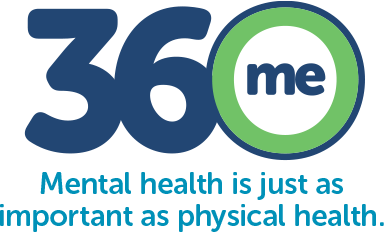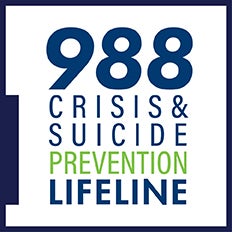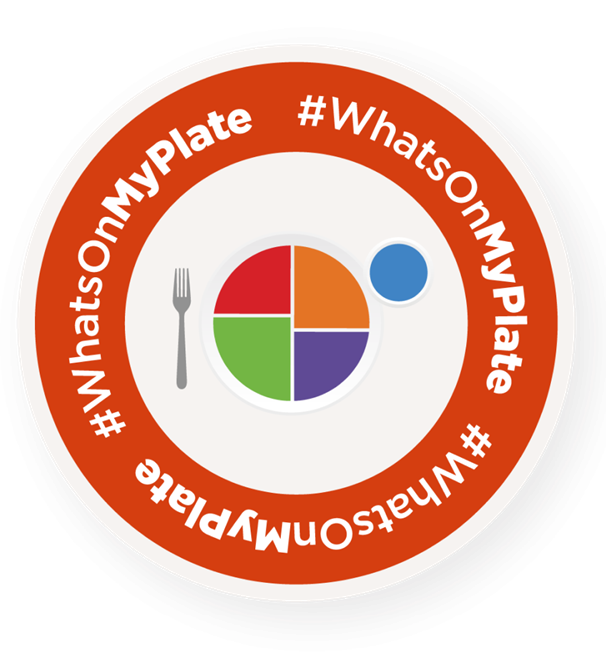Healthy Kids. Healthy Futures. is a partnership of Valley Children's and Fresno State focusing on the health and well-being of kids in the Central Valley to help secure the future of the community for generations to come. It is a community health initiative emphasizing the importance of a child's entire physical and mental well-being in playing a vital role in keeping kids healthy.
Fuel Your Kids' Future
It’s important for children to learn healthy eating habits early on to develop a strong foundation for their growth, learning, and overall well-being. Valley Children’s believes that healthy choices don’t have to be complicated or costly - small, smart steps can lead to significant improvements. Join us as we explore practical tips for creating balanced meals and fostering a lifestyle that nurtures a brighter future for our children.
Menu planning and making healthier decisions can be difficult for parents. That’s why we’ve developed some tips to help you make the right choices that will lay a strong foundation for your child’s health.
Model Healthy Food Choices: Children are great at picking up habits from their parents, so set a good example by making healthy food choices yourself.
- Enjoy a variety of fruits, vegetables, whole grains and lean proteins in your meals.
- Talk about why you choose certain foods and how they help you feel your best.
Let Kids Get Involved: Involving your kids in hands-on meal planning and preparation can spark their interest in healthy foods and make them more likely to try new things.
- Take them grocery shopping and let them pick colorful fruits and vegetables that catch their eye.
- Encourage them to help with simple cooking tasks, like washing veggies or stirring ingredients.
Control Nutritional Access: Creating a healthy environment at home sets the stage for better eating choices and plays a big role in your child’s eating habits.
- Stock your pantry and fridge with healthy snacks like fruits, yogurt and whole-grain crackers, while limiting sugary or processed options.
- When kids have easy access to nutritious foods, they’re more likely to choose them.
Avoid Negatively Labeling Foods: It’s important to create a positive attitude towards all foods, so avoid labeling them as "good" or "bad."
- Talk about foods in terms of how they nourish our bodies.
- Encourage your kids to enjoy treats in moderation without guilt.
Create a Mindful Eating Environment: Setting the scene for meals can make a big difference in how kids eat.
- Try to have regular family meals where everyone sits down together without distractions like TV or phones.
- Encourage your kids to pay attention to their hunger and fullness cues while enjoying their food.
The Amendola Family Student Cupboard: Fresno State offers a free food pantry for currently enrolled students, allowing them to visit once a day for on-campus access to healthy food. Students can choose from a selection of fresh fruits and vegetables, non-perishable canned and boxed items, dairy and non-dairy products and various meat options.
MyPlate.gov: MyPlate replaced the Food Guide Pyramid, taking what we learned from the Food Pyramid and reintroducing it in a simple visualization and personalized approach to healthy eating. Parents can learn what and how much to eat from each of the food groups and customize MyPlate to fit dietary needs, preferences and budget.
American Heart Association: The AHA provides a free, subscription-based digital recipe booklet called Shop Smart, Eat Smart. This convenient resource helps parents prepare simple, affordable meals and learn about heart-check foods, the AHA’s designation to make it easier to identify nutritious options when shopping or dining out.


Back-to-School
Getting your kids ready for a new school year means ensuring they are prepared both physically and mentally. Helping them find a balanced routine, develop healthy habits and stay positive can make a big difference. Check out these resources for ways to help your child make the transition back to school a smooth one and start the school year strong!
While back-to-school can be overwhelming for many parents, it's important that you create a positive environment and provide the necessary emotional support for the child. Here are some easy tips to help you with the necessary preparations.
- Book your annual checkup with your pediatrician and ensure your child is up to date on vaccinations. And if your child is playing a sport at school, don't forget to have your doctor complete the physical form.
- Children may have anxieties or concerns about going back to school, meeting new friends and getting to know their new school or teacher. Listen to your child's worries and offer reassurance. Help your children feel comfortable expressing their emotions by asking them how they are feeling. Listen attentively without judgment. Don't hesitate to consult a mental health professional if you notice signs of distress.
- Not only can social media be a distraction, it can also be damaging to a child's mental health. Limit the amount of time your child spends on social media, or choose to keep social media off-limits during certain times of the day. Regularly check the apps and websites your child uses and stay aware of their online interactions. Model good behavior by limiting your own social media use, especially during family time.
- Summer may mean later nights and a flexible schedule, so start adjusting bedtime a few weeks before school starts, gradually moving it earlier by 15 to 30 minutes every few days until the desired time is reached. Then, maintain a consistent sleep schedule, even on weekends, to help regulate your child's internal clock.
- Back to school means back to sports. Participating in sports is an excellent way for kids to remain physically active and develop social skills. But be diligent and make sure your child has appropriate sports gear and safety equipment, including helmets, pads and suitable footwear. Check that coaches and instructors are properly trained in first aid and CPR.
- Establishing good eating habits at home can enhance concentration at school as well as improve overall cognitive function, essential for learning. Start the day with a balanced breakfast to fuel your child's body, and include a variety of food groups throughout the day — fruits, vegetables, whole grains, protein and dairy — to ensure a balanced intake of essential nutrients. Also, make sure you child drinks enough water (limiting juice and energy drinks) to maintain energy levels and support overall bodily functions.
As parents, it's your job to model healthy habits early on. In this video, NFL Network Analyst and Valley Children's Ambassador David Carr talks about his personal experience of setting an exercise routine for his family. Learn how to establish and maintain healthy habits that your children can match, setting them up for a successful and active school year.
As the back-to-school season approaches, it's important to understand the many benefits of exercise for kids and how much is enough. In this video, Valley Children's doctors talk about setting healthy exercise goals, the impact of physical activity on a child's overall health and offer tips on how to incorporate exercise into your family's daily routine. Ensure your children are physically prepared for a successful school year by making exercise a priority.
As kids head back to school, a healthy diet is essential. Valley Children's doctors debunk common myths and offer tips to ensure your kids are on the right nutritional path. Learn how to create balanced meals and snacks to keep your children energized and ready for the new school year.
Want to make healthy eating easy and natural for your kids as they head back to school? In this video, Valley Children's doctors share tips on creating mindful habits that promote healthy eating for the whole family. Learn practical strategies to build a nutritious diet together.
Physical Well-being
As a parent, you don't have to be an athlete or coach to make sure your kids are exercising regularly. By encouraging kids to be physically active and eating healthy meals as a family, they learn to build life-long habits that will benefit them in college and into adulthood. Watch the video for simple ideas to get kids moving.
Regular exercise is not only important for kids' attention, memory, muscles, and mood – it also helps their future health by reducing their risk of preventable diseases like type 2 diabetes, obesity, high cholesterol, and high blood pressure.
In general, kids and teens should aim for at least 60 minutes of exercise per day. Here are some ways to make exercise fun and manageable for all ages.
Physical Activity Ideas for Preschool (Ages 3-5)
For preschool age children 3 to 5 years old, activities can include tag, follow-the-leader, playing at a local park or playground and even dancing. Physical activity can be done all at once or broken up throughout the day, so consider all the movement your kids enjoy from sunrise to sundown.
Physical Activity Ideas for School Age (Ages 5-9)
Some fun exercise ideas for school-aged children 5 to 9 years old include walking, running, jumping rope, dancing, and even ball-based games like catch, basketball, or soccer. It is important to lead by example; parents need exercise, too! Your child looks up to you and if they see you exercising, they'll want to follow your lead. Consider the impact of your habits and enjoy some activities together.
Physical Activity Ideas for Adolescents (Ages 10-19)
Adolescents 10 to 19 years old can enjoy brisk walking, swimming and strength training exercises like pushups, pull ups, or yoga. Also consider video games that require movement and even chores around the house. You can also consider assigning kids household chores that involve greater movement, like mowing the lawn or taking the dog for a walk or run – it is an easy way to get some things checked off your to-do list and can give your four-legged friends some extra attention, too.
Remember not to worry too much about how kids exercise – what matters is that they do. And most importantly, make sure they are safe, and remember to have fun.
Physical well-being and mental health are closely connected. In this video, NFL Network Analyst and Valley Children's Ambassador David Carr shares how being physically active improves his mood and attention throughout the day.
Your kids want to be just like you. As parents, it's your job to model healthy habits early on. In this video, NFL Network Analyst and Valley Children's Ambassador David Carr talks about his personal experience of setting an exercise routine for his family.
Exercise doesn't have to feel like work. In this video, Fresno State Head Football Coach Jeff Tedford talks about the importance of injury prevention and having fun.
There are many benefits of exercise for kids, but how much exercise is enough? In this video, Valley Children's doctors share how to set healthy goals, the impact on a child's overall health and how to make it happen for you and your family.
A healthy diet is important for everyone, but especially for kids. To help with that nutritional journey, Valley Children's doctors share common myths and tips to ensure your kids are on the right path.
Want to learn more about how to make nutritional choices easy and natural for kids? In this video, Valley Children’s doctors talk about how to create mindful habits that foster healthy eating as a family.

360me is Valley Children's Healthcare's national initiative to help families, schools and communities safeguard our children's physical and mental health. Learn more at valleychildrens.org/360me.

Safe Kids Central California is a coalition of 30 agencies dedicated to preventing unintentional injury in children. Unintentional injury is the number one killer of children across the United States and around the world. Prevention areas are child passenger safety, drowning prevention, falls/sports injuries, burn prevention, safe infant sleep, safe teen driving and medication safety. To learn more visit safekids.org.
Mental Health
Mental health tops the list of worries parents have about their children. You don't have to be an expert to talk to your kids and teens about mental health. Make the time ot listen and engage with them. Watch the video to learn more about the signs of anxiety and depression to look for ways to start a conversation today.
Understanding mental health can be challenging for kids, and talking about mental health with kids can be particularly challenging for parents. The following are tips on how to start and continue the conversation about mental health with your child.
When talking to your teens:
- Focus on listening to what they have to say, regardless of how you might feel about the matter.
- Respond with empathy and validation while expressing calm and reassurance. A child's stress is just as real as our own and a sense of belonging and acceptance is at the center of their world, so reaffirm their feelings, especially those about friends and partners.
- Avoid judgement and personal opinions or lectures that could cause your child to feel defensive.
- Remind them how much they matter and how much you love them.
- Let your teen know they are not alone in experiencing sadness or emotional distress - bad times won't last forever. Reassure them that "it's okay not to be okay" because everyone has rough patches. What is important is that they seek the support they need or find healthy coping skills to get through the tough times.

